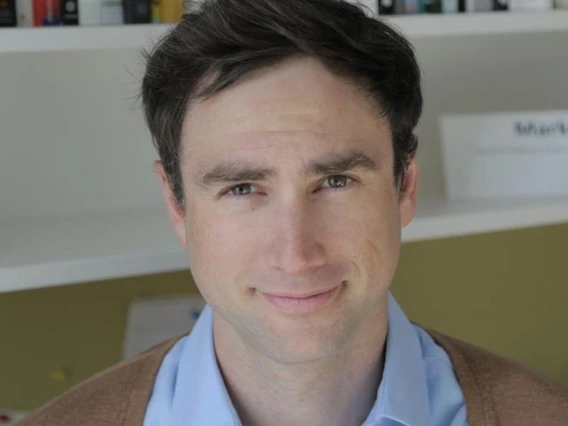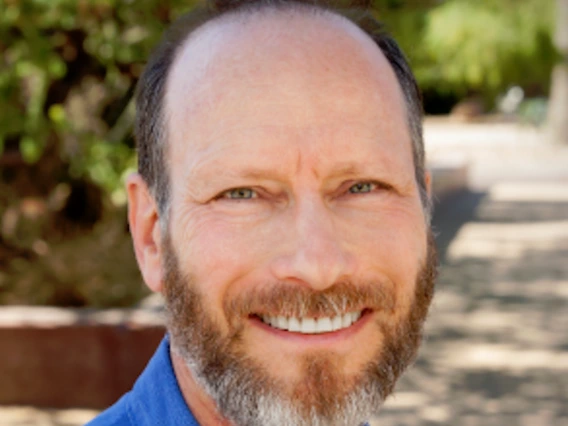Q&A: Researchers discuss the human need for climate action now

From our wallets to our values, climate change impacts every aspect of our lives. In this conversation with Making Arizona’s content experts, Mark Kear and Gregg Garfin, the researchers emphasized economic and moral arguments for climate action. Along with highlighting these three perspectives, they also offered practical insights on how individuals can actively contribute to addressing these challenges.
The economic argument
Q: How will we witness the impact of climate change directly affecting our lives?
Kear: We often think about climate change as something that happens outside, right? But the reality is that we spend most of our time inside. Americans spend on average 90% of our time inside, and most of that in a private residence. We are likely to spend more time inside as the temperature outside gets hotter and hotter. That means we're gonna be spending a lot more money keeping our homes cool.
Q: Are there other ways our households are affected by climate change?
Kear: There was an interesting article that came out in Nature recently. What they did was, they used better maps to say, “Look, a lot of the existing floodplain maps are not accurate and if we were to actually accurately map the properties that are in risk of flooding, then it puts at risk somewhere between 121 and 237 billion dollars of unpriced flood risk.” The U.S. economy is very much a housing centered economy and so it's a threat to this sort of foundation of our economy, the value of our homes, right? The cornerstone of the American dream is homeownership and climate change for this one hazard, flooding, is a major threat to that.
Q: Why is it important to consider the impact of climate change on other countries?
Garfin: You live in Arizona. We get a lot of goods, and the vast majority, something like 97% of our food is imported. Whether that's from California or Mexico, or Chile or Asia, many other places. It's in our self-interest to our own food security to ensure that we get the goods that we need to maintain our lifestyles to make that connection to people in other countries, because they're the ones growing our food or or making those goods that we will ultimately end up using. We want to make sure they're treated well, they're secure in their abilities. Climate change is not abstract to them in garnering their livelihoods. There's a ripple effect to us, just from a simple matter of self interest. What's good for other folks is ultimately going to be good for us.
The moral argument
Q: Besides financial implications, are there any other losses associated with climate change?
Garfin: It's a little more abstract, but just making the most of human potential.
People are going to be having all sorts of added costs, whether they are literal, tangible economic costs for water or cooling or other kinds of amenities. Or they're less tangible in terms of cultural values and aesthetics that might be related to plants or animals or the way the landscape looks. Or just even being able to maintain your livelihood in Arizona. All of those things affect people.
Kear: There are whole island nations that may not exist, may be underwater in decades to come. If you expand this to include the non-human world, we're living in the midst of a massive extinction event. And so far as we think there is inherent value to life on this planet, then I think we have a moral and ethical obligation as the species on this planet that is able to have the greatest impact and adjust its behavior to do something.
Q: What are some misconceptions people may have about “vulnerable” people?
Kear: I think it's important to recognize the impacts of climate change are layered on top of already existing inequalities. The term of art for this type of vulnerabilities is intersectional vulnerabilities. Histories of racism intersect with the capacity with how exposed people are to hazards, how sensitive they are to hazards and their capacity to adapt.
Q: How can we portray these vulnerable communities without perpetuating stereotypes?
Kear: Someone who's able to create an environment for their family to thrive under extreme heat without an effectively working air conditioner — this is an achievement that I don't think we recognize or the ways in which people band together to help each other. I think that we need to sort of shift our lens, and think differently about what are the meritorious stories? What are the achievements, what are the struggles that are important to lift up?
Solutions
Q: Why should we prioritize the preservation and maintenance of our natural landscape?
Garfin: I like hiking and I've seen the damage just here in the Santa Catalina Mountains and many other mountain ranges here in Southern Arizona. It will take many decades for a lot of those trails and forests, and even just grass and shrublands to recover from really extreme fires.
There are a number of culturally important plants and places that are threatened by existing storms, increased heat, or mismatches and timing between when plants bloom and when pollinators arrive that have important cultural meanings for people and for maintaining aspects of culture.
Q: What are some ways we can rethink the existing structures we have now in our cities to adapt to climate change?
Kear: If we invested huge amounts of money, make luxurious public spaces, we could help a lot of people. This is gonna seem strange, but having really fancy public pools that can accommodate thousands of people, that's climate adaptation. That's equitable climate adaptation.
Q: How can we start to address the issues posed by climate change to our peers?
Garfin: Just asking the question, “What are you concerned about?” Because climate change undoubtedly affects some aspect of something you're concerned about. That is a simple way to start a conversation with somebody about climate change. The biggest barrier is that people think they need to be an expert to talk about climate change. But I don't think that's really the case.

Mark Kear, PhD, is an assistant professor at the University of Arizona’s School of Geography, Development and Environment. Kear’s research focuses on financing for manufactured houses, urban development in credit constrained U.S. cities, and how the financial market affects those in poverty.

Gregg Garfin, PhD, is a professor and specialist in climate, natural resources and policy, in the University of Arizona’s School of Natural Resources and the Environment and a deputy director for Science Translation and Outreach in the Arizona Institute for Resilience. Garfin has worked for more than two decades to bridge dialogues between scientists and decision makers through collaborative climate and environment research projects. His research focuses on adaptation to a changing climate, climate variability, and drought.
